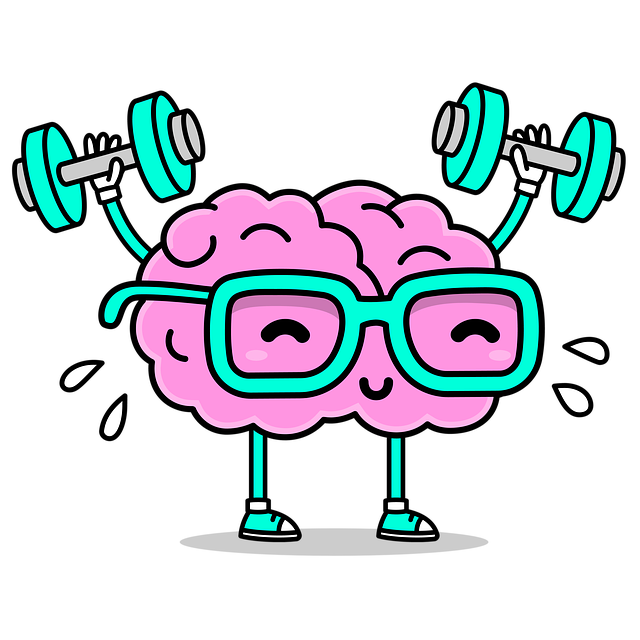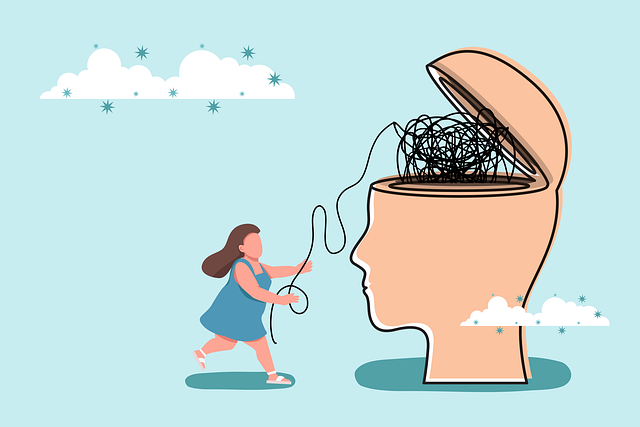Colorado Springs stands out for its holistic approach to Colorado Springs Developmental Disability Therapy, focusing on mood regulation due to unique emotional challenges faced by individuals with developmental disabilities, such as sensory sensitivities and communication barriers. Therapists employ a multi-faceted strategy including communication techniques, mental health policy advocacy, and healthcare provider cultural competency training. They use mindfulness practices, breathing exercises, meditation, and community support services like crisis intervention and burnout prevention programs. This comprehensive method aims to foster resilience, self-awareness, and inclusive practices within the vibrant Colorado Springs community, empowering individuals and their caregivers for improved daily well-being.
Mood regulation is a vital aspect of emotional well-being, especially for individuals living with developmental disabilities. This comprehensive guide explores effective strategies to manage moods in the context of Colorado Springs developmental disability therapy. We delve into understanding the unique challenges and offer practical tips for daily mood management. By integrating these insights, folks in Colorado Springs can enhance their emotional resilience and improve overall mental health.
- Understanding Mood Regulation for Developmental Disabilities
- Strategies to Enhance Emotional Well-being in Colorado Springs Therapy
- Practical Tips for Daily Living and Mood Management
Understanding Mood Regulation for Developmental Disabilities

Understanding Mood Regulation for Developmental Disabilities is a critical aspect of Colorado Springs Developmental Disability Therapy. Individuals with developmental disabilities often face unique challenges in managing their emotions, which can be influenced by various factors such as sensory sensitivities and communication barriers. These individuals may struggle to express or comprehend their feelings, leading to heightened emotional states or difficulty regulating them.
Effective mood regulation strategies involve a multifaceted approach. Communication Strategies play a pivotal role in helping these individuals understand and manage their emotions. Mental Health Policy Analysis and Advocacy ensures that services and support are accessible and tailored to their needs. Moreover, Healthcare Provider Cultural Competency Training is essential to create an inclusive environment where professionals can better understand the unique context of each individual, fostering more effective mood regulation interventions.
Strategies to Enhance Emotional Well-being in Colorado Springs Therapy

In Colorado Springs developmental disability therapy, enhancing emotional well-being is a multifaceted approach that goes beyond treating symptoms. Therapists in this vibrant community employ diverse strategies to support individuals with developmental disabilities in managing their emotions effectively. These methods include mindfulness practices tailored to reduce stress and anxiety, promoting self-awareness and emotional regulation skills. Techniques such as breathing exercises and guided meditation help clients navigate challenging situations, fostering resilience and a sense of calm.
Beyond individual therapy sessions, Colorado Springs offers crisis intervention guidance and burnout prevention programs designed to support both individuals with disabilities and their caregivers. Mental health policy analysis and advocacy play a crucial role in ensuring accessible services and resources for the community. By combining therapeutic interventions with community support, Colorado Springs strives to create an environment that nurtures emotional well-being, empowers individuals with developmental disabilities, and promotes inclusive practices across various settings.
Practical Tips for Daily Living and Mood Management

Managing your mood effectively can significantly impact your daily life and overall well-being. For individuals with developmental disabilities or those seeking personal growth, practical strategies are essential tools. In Colorado Springs, developmental disability therapy centers often emphasize the importance of self-care and emotional regulation. One powerful approach is to incorporate mindfulness practices into your routine. Simple techniques like deep breathing exercises, meditation, or even mindful walking can help calm the mind and reduce stress levels throughout the day. These activities allow individuals to connect with their senses and cultivate a sense of present-moment awareness, which is key to mood management.
Additionally, fostering emotional intelligence plays a crucial role in navigating life’s challenges. The Stress Management Workshops Organization offers valuable resources and programs that teach individuals how to recognize and understand their emotions. By developing emotional intelligence, one can better manage stress, improve communication skills, and enhance overall resilience. Regular self-reflection and keeping a mood journal are also effective methods. Assessing your feelings and identifying triggers can help you develop personalized strategies for coping with difficult situations. Remember, taking care of yourself is not just a luxury but an essential practice for anyone seeking to lead a fulfilling and balanced life, especially when navigating the complexities of mental health, as highlighted in the context of risk assessment for mental health professionals.
In conclusion, effectively managing mood regulation is an essential aspect of supporting individuals with developmental disabilities. By combining therapeutic strategies in Colorado Springs developmental disability therapy with practical daily living tips, a holistic approach to emotional well-being can be achieved. These methods empower individuals to navigate their emotions, enhance resilience, and lead more fulfilling lives, ultimately enriching their overall quality of life in Colorado Springs.














